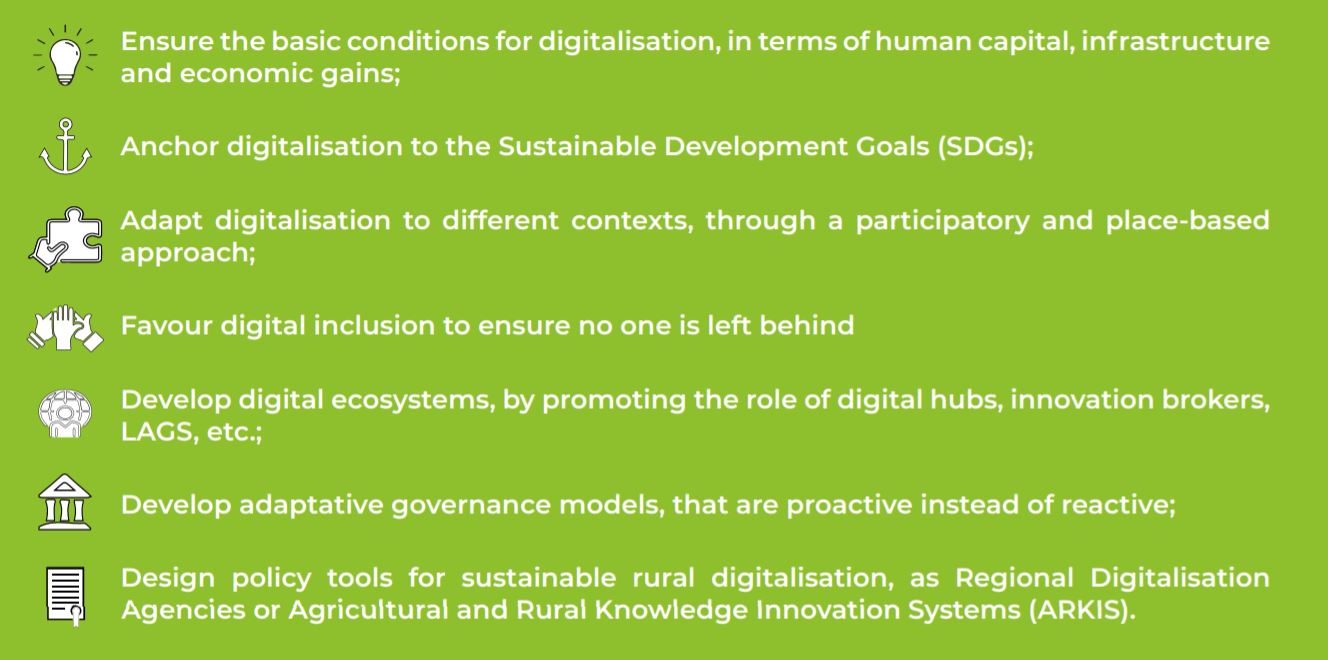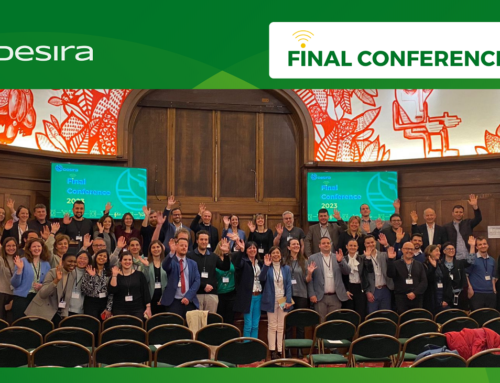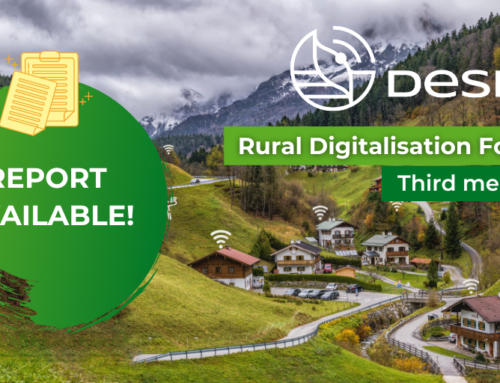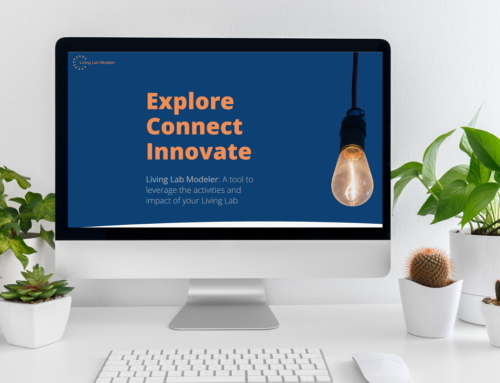Authors: Youna Deniaud and Blanca Casares, AEIDL
On 30 June 2021, DESIRA organised a webinar on ‘Boosting sustainable digitalisation in agriculture, forestry and rural areas by 2040’ under the scope of the Rural Digitalisation Forum (RDF). The aim was to get a common understanding of the envisaged role of digitalisation in the communication on the EU long-term vision for rural areas, by bringing together rural stakeholders to reflect on the contribution of DESIRA and RDF experts to this process.
Challenges and opportunities for digitalisation
This webinar reflected on the guiding principles for sustainable digitalisation proposed by the experts of the RDF, and encouraged participants to identify the main challenges and opportunities of digitalisation, as well as the political support needed to ensure it on a sustainable path. In this sense, the main challenges raised by the experts were:
As main opportunities offered by digitalisation, the experts highlighted:
- access to new markets and business models by adapting through digital innovation, and creating opportunities in newly emerging sectors such as energy, e-health, mobility, etc;
- enhanced access to services to enable new models of essential service delivery in rural areas;
- increased productivity and resource efficiency, enabling the reduction of environmental and climate change impacts;
- community-led innovation, by reshaping the way rural areas and citizens interact.
Policy support needed to ensure sustainable digitalisation
The digital transformation has a very important role in the future of agriculture, forestry and rural areas. However, since digitalisation is not good per se, policy support is needed to ensure that it leads to a desirable future by 2040. When participants were asked what is the relevant policy support needed on the ground, they answered:
- establishing a holistic framework of targets for rural digitalisation, which should be set up at all levels of power (EU, national, regional and local) and should go beyond infrastructure and broadband deployment. It should encompass other important aspects such as skills and access to digital technologies;
- ensuring that policies supporting digitalisation do not trigger or widen the urban-rural divide, through equal access to digitalisation and its benefits;
- supporting to digitalisation, but not at any cost, taking into account the specificities of territorial conditions and enabling communities and businesses to seize the available opportunities and avoid the risks that digitalisation might post;
- digital infrastructure and skills as prerequisites for digitalisation, especially in remote rural areas, by building capacity, awareness and connectors in communities and sectors;
- necessary support for local cooperation on digitalisation in various rural areas, combining bottom-up participatory processes with a top-down approach.
High-level experts
The webinar counted with presentations from different experts to contextualise the role of digitalisation in the long-term vision. Juan Velasco, representative of DG AGRI, introduced some of the evidence gathered by the European Commission (EC) to build the vision. He explained that connectivity involves much more than broadband access, and digitalisation could be a game changer to guarantee a sustainable future for rural areas. Mr Velasco also highlighted the funding mechanisms that the EC has in place to promote digital connectivity.

The project coordinador, Gianluca Brunori, presented the guiding principles for sustainable digitalisation. He stressed that digital technologies are the means to an end, and not an end itself. From a policy point of view, the digitalisation process should commence from the needs of society, and the expected and desired outcomes from the digital transformation process.
The webinar also presented the preliminary results of the DESIRA Needs, Expectations and Impacts (NEI) report, in which the 21 DESIRA Living Labs (LLs) participated. Fabio Bartolini provided an overview about the results of the survey and interviews, which show that there is a clear urban-rural divide in terms of digitalisation, especially regarding access to digital public services, women’s participation in digital contexts and digital skills to use technologies.
Finally, the experts Cynthia Giagnocavo from the University of Almeria, Monia Santini from the CMCC Foundation and Emilija Stojmenova from the 4P Digital Innovation Hub in Slovenia presented introduced how digitalisation can play a key role in agriculture, forestry and rural areas by 2040.
If you wish to know more, you can find all the materials from the webinar on our website, including the webinar highlights.









